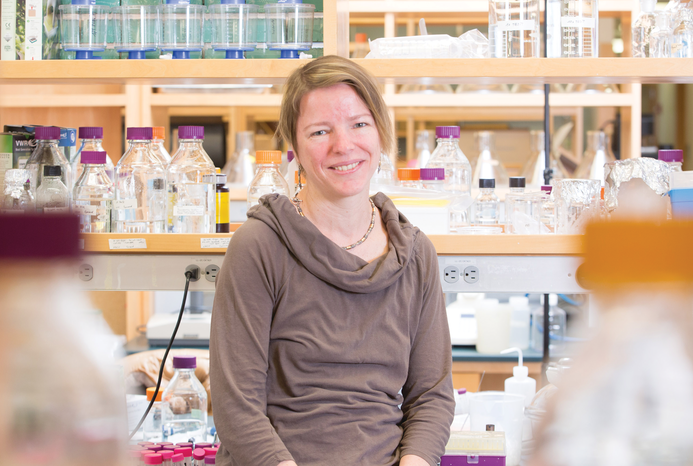Dr. Olga Boudker, acting chair of the Department of Physiology and Biophysics and a respected researcher in the molecular study of the brain, has been elected to the prestigious National Academy of Sciences, one of the highest honors a scientist can receive.
Dr. Boudker was among 120 new scientists in the United States and 30 internationally to be named to the National Academy of Sciences, a private, non-profit organization of scholars created by President Abraham Lincoln in 1863 to advise leaders on scientific matters.
Additionally, three scientists from Cornell’s Ithaca campus were also elected this year: Dr. Christopher Barrett, the Stephen B. and Janice G. Ashley Professor of Applied Economics and Management in the Charles H. Dyson School of Applied Economics and Management; Dr. Peter Lepage, the Tisch Family Distinguished University Professor in the Department of Physics, College of Arts and Sciences; and Dr. Gregory Martin, the Boyce Schulze Downey Professor in the Boyce Thompson Institute for Plant Research and a professor of plant pathology and plant-microbe biology. There are currently 2,512 active members in the United States and 517 international members.
“It’s a great honor and comes with a sense of excitement and satisfaction, but also a sense of responsibility. As an established senior scientist, young people rely on me and turn to me for advice and support,” said Dr. Boudker, a third-generation scientist, who learned of the honor while busy in her laboratory on May 3. Dr. Boudker noted that her mother, a retired biochemist and physiologist, is especially proud of her latest achievement.
Grateful to be recognized by her peers, Dr. Boudker said joining the academy means that “there is something sufficiently original about how I think about science and that’s inspirational to people in my field."
Also a Howard Hughes Medical Institute Investigator, a distinction that includes long-term research support, Dr. Boudker’s work centers on understanding how tiny pumps in the brain transport a chemical called glutamate. Brain cells use glutamate to communicate in processes that lead to memory and thought formation. Disruptions to the pumps because of an injury or disease can cause neurological malfunctions and brain damage. To understand the mechanics of these nanoscopic machines, Dr. Boudker’s lab uses ultra-high resolution microscopy and advanced biophysical techniques to “photograph” the pumps and observe their motions.
Dr. Boudker compares biomedical science and its various components to an apple tree. The apples are new medicines and therapies – the ultimate goal of biomedicine. However, the job of basic scientists like her is to nurture the roots of the tree, providing a foundational understanding of human biology. It is equally as important, she said.
“We are tending to the roots and tree so it flourishes and then the translational science can take off.” said Dr. Boudker, who is also a professor of physiology and biophysics at Weill Cornell Medicine.
Dr. Boudker anticipates that understanding how our brain functions at the scale of individual molecules will eventually aid the development of new strategies to treat brain disorders and injuries.

